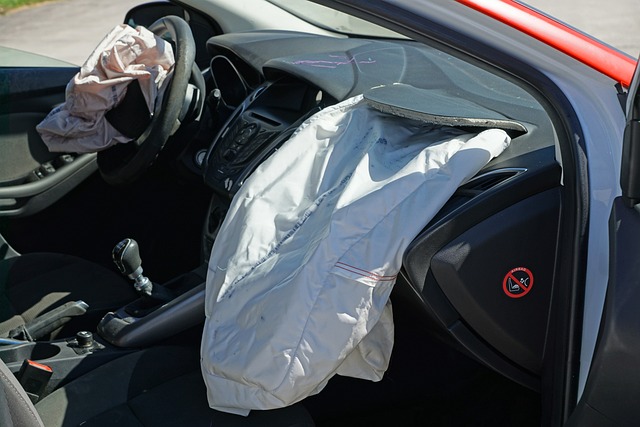Temporary car insurance provides flexible and customizable protection for drivers with short-term needs, offering various options from basic liability to comprehensive plans. For new car owners, this is a cost-effective solution that offers essential liability coverage without the need for full insurance. When choosing temporary coverage, compare quotes, consider different types (short-term, daily, mileage-based), and evaluate add-ons like rental car benefits and roadside assistance. Avoid common mistakes by understanding your needs and reviewing policy details to ensure adequate protection for your specific use cases.
In today’s digital era, many drivers seek flexible and affordable solutions for their short-term vehicle needs. Enter temporary car insurance coverage options—a game-changer for those who don’t require long-term policies. This article explores the ins and outs of understanding and leveraging temporary car insurance. We’ll delve into its benefits, various types, target audiences, and strategies to secure the best deals. From avoiding common mistakes to real-world applications, learn how this option can revolutionize your automotive protection without breaking the bank.
Understanding Temporary Car Insurance: A Quick Overview

Temporary car insurance is a flexible option designed for drivers who need short-term protection, whether it’s for a new vehicle during its initial months or while waiting for their permanent policy to kick in. This type of coverage offers several benefits, including broad customization and affordable rates, making it an attractive choice for many.
There are various temporary car insurance coverage options available, catering to different needs and budgets. These can range from liability-only policies that cover damage to others’ vehicles and injuries, to more comprehensive plans that include protection for your own car, personal belongings, and medical expenses. Understanding these options is key to choosing the right level of coverage for your temporary needs.
Why Choose Affordable Short-Term Coverage?

Choosing affordable short-term coverage for new cars offers several compelling advantages, especially for drivers who don’t need extensive protection or are looking to save money on their insurance premiums. In today’s world, where vehicle ownership is often transient, temporary car insurance provides a flexible and cost-effective solution. It allows drivers to be covered while they transition between jobs, own multiple vehicles, or simply don’t require full-time insurance for a newly purchased car.
With temporary car insurance coverage options, you can access basic liability protection without paying for unnecessary features. This is particularly beneficial for new cars, as the initial cost of ownership is already significant. By opting for affordable short-term plans, drivers can protect their investment from financial losses due to accidents or damages while keeping overall expenses under control. It’s a practical choice that offers peace of mind without breaking the bank.
Types of Temporary Car Insurance Policies

When considering temporary car insurance, there are several coverage options available that cater to different needs. Short-term policies can range from a few days to a couple of months and are ideal for those who need immediate protection while their long-term policy is in process or if they’ve recently acquired a new vehicle. These policies often include liability coverage, which protects against damages caused to others in the event of an accident.
In addition to basic liability, some temporary car insurance plans may offer comprehensive or collision coverage, which can be beneficial for drivers who want broader protection. Comprehensive coverage shields against non-liability events like theft, vandalism, or natural disasters, while collision insurance covers damage to your own vehicle resulting from accidents. Remember that specific policy details and available options can vary between providers, so it’s essential to review the fine print when selecting a temporary car insurance plan.
Who Needs Affordable Temporary Car Coverage?

Many new car owners find themselves in a conundrum when it comes to insurance: while they want comprehensive protection, full-scale coverage can be expensive and not always necessary for temporary use. This is where affordable temporary car coverage options come into play. These are ideal for those who just bought a new vehicle but don’t need long-term protection, such as students, young professionals, or individuals with limited driving needs.
Temporary car insurance allows you to customize your coverage based on your specific requirements and budget. Whether you’re planning a road trip, transitioning between jobs, or simply don’t drive frequently, these options offer flexibility and cost savings without compromising on safety. By choosing the right temporary car insurance, you can ensure peace of mind while keeping expenses manageable for your new vehicle.
How to Get the Best Deals on Temporary Insurance

When looking for the best deals on temporary car insurance, it’s essential to explore various coverage options tailored to your needs. Start by comparing quotes from multiple insurers, as this provides a wide range of prices and policies. Consider different types of temporary coverage like short-term, daily, or mileage-based plans, as these can offer significant savings depending on how often you drive. Additionally, review the inclusion of liability, collision, and comprehensive deductibles, allowing you to choose the right balance between cost and protection.
Next, evaluate additional perks and exclusions to ensure you get the most value for your money. Some policies may include rental car benefits, roadside assistance, or waiver fees, which can add substantial savings over time. Look into discounts as well; many insurers offer reduced rates for good drivers, students, veterans, or when bundled with other policies. By thoroughly assessing these factors, you’ll be well-equipped to secure the best deals on temporary car insurance coverage options.
Common Mistakes to Avoid When Buying Temporary Coverage

When considering temporary car insurance, it’s easy to make mistakes that could leave you underinsured or facing unexpected costs. One common error is assuming all temporary policies are created equal. In reality, there are various coverage options available, from liability-only to more comprehensive plans. Understand your needs and choose accordingly; for instance, if you plan to use the car for long drives, opt for a policy with higher limits to protect against potential accidents.
Another blunder is not reviewing the fine print. Temporary insurance policies often exclude specific activities or vehicles. Ensure the coverage allows for the intended use, such as driving on highways or operating specialized equipment. Additionally, check if there are any limitations on pre-existing conditions or if certain events, like racing or transporting goods, are excluded. Being aware of these potential pitfalls will help you make an informed decision when selecting your temporary car insurance coverage options.
Real-World Scenarios: Benefits of Temporary Car Insurance

In today’s world, where plans often change and unforeseen circumstances arise, temporary car insurance offers a much-needed safety net for new car owners. Whether it’s a short-term loaner while your vehicle is in the shop, or an occasional policy for weekend getaways, this type of coverage provides flexibility and peace of mind. For instance, imagine a young professional who recently purchased their first car but still juggles part-time jobs and varying commitments; temporary insurance allows them to cover their vehicle during specific periods without committing to long-term plans.
The benefits extend beyond convenience. Temporary Car Insurance Coverage Options give drivers the chance to choose specific protections relevant to their needs, such as liability, collision, or comprehensive, without the obligation of a full policy. This is particularly useful for new car owners who want to protect their asset but may not yet require the extensive coverage offered by long-term policies.
